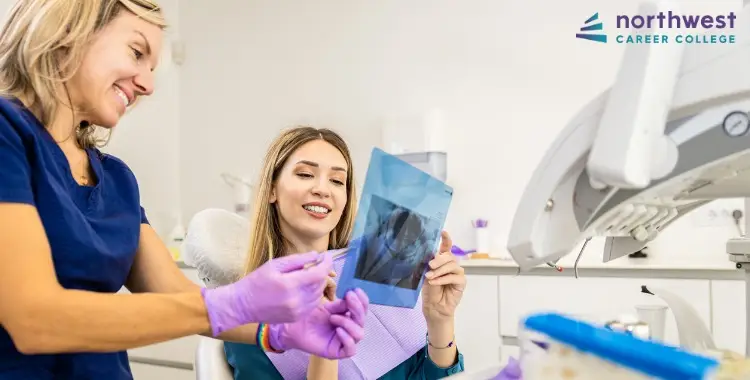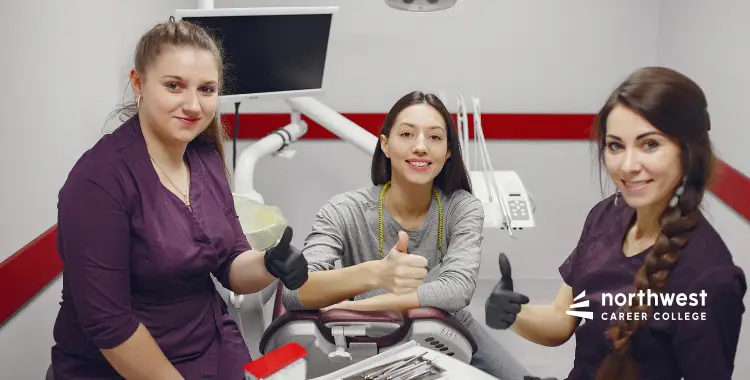Effective Follow-up Procedures for Patient Care as a Dental Administrative Assistant
- May 27, 2024
- 3.7k views
- 3 min read
As a Dental Administrative Assistant, your role ensures every clinic patient has an excellent customer service experience. In addition to properly preparing for upcoming patient visits, you must effectively follow up with patients after their appointments. The goal is to enhance the care and encourage them to return for regular dental visits.
In this blog post, we will explore various strategies and best practices Dental Administrative Assistants can adopt to ensure they provide the highest level of care and boost patient retention.

Table of Contents
The Importance of Follow-up in Dental Care
Follow-up care in dentistry is more than just scheduling the next appointment. Instead, it involves establishing a continuous care relationship with patients to monitor ongoing conditions, manage treatment outcomes, and encourage patients to use preventative care recommendations. Effective follow-up also reassures patients that their dental health is a priority for the practice, which can strengthen their loyalty and trust.
Developing a Systematic Follow-up Process
A well-organized follow-up process begins with correctly using scheduling tools and dental practice management software. As a Dental Administrative Assistant, you should ensure you are proficient in using these tools to set follow-up reminders based on individual treatment plans. For instance, patients undergoing treatments like orthodontics or dental implants may require more frequent follow-ups than those coming in for routine check-ups.
Leveraging Technology for Enhanced Communication
Utilize technology to maintain communication with patients between visits. Healthcare providers can use automated text messages, emails, and even phone calls to remind patients of their upcoming appointments. Dental Administrative Assistants also inform the patient about the care they should take post-procedure and provide tips for maintaining oral health.
Personal Touch and Patient Education
It is essential to educate patients about their oral health and their treatments before, during, and after procedures. By doing so, patients will feel empowered and understand the significance of follow-ups as a crucial part of their treatment plan. During your conversations with patients, it is important to be informative and friendly, creating a comfortable environment for them to ask questions and discuss their concerns.
Feedback and Patient Satisfaction Surveys
Understanding your patients’ experiences at your dental practice is essential for establishing a system for collecting feedback. One way to do this is by using patient satisfaction surveys, which can provide valuable insights into what patients like and what areas they believe could be improved. By analyzing this feedback, you can refine your follow-up procedures and overall patient care strategies to meet your patient’s needs more effectively.
Regular Training and Professional Development
Participation in regular training and professional development courses will keep you updated with the latest dental practices and patient management techniques. Enhancing your skills as a Dental Administrative Assistant will improve your ability to manage effective follow-ups and increase your value within the dental team.
Building Long-term Patient Relationships
Effective follow-ups are about building and maintaining long-term relationships with your patients. Make each patient feel important by remembering personal details, dental history, and past conversations. This personalized approach can significantly enhance patient satisfaction and retention.
Conclusion
Effective follow-up procedures are crucial in dentistry, where patient care and satisfaction are paramount. As a Dental Administrative Assistant, your ability to implement these strategies successfully can make a significant difference in patient retention and the overall success of the dental practice.
By ensuring thorough follow-up care, maintaining open lines of communication, and continuously improving your skills, you can help create a positive and lasting impact on your patients’ dental health and loyalty to your practice.





